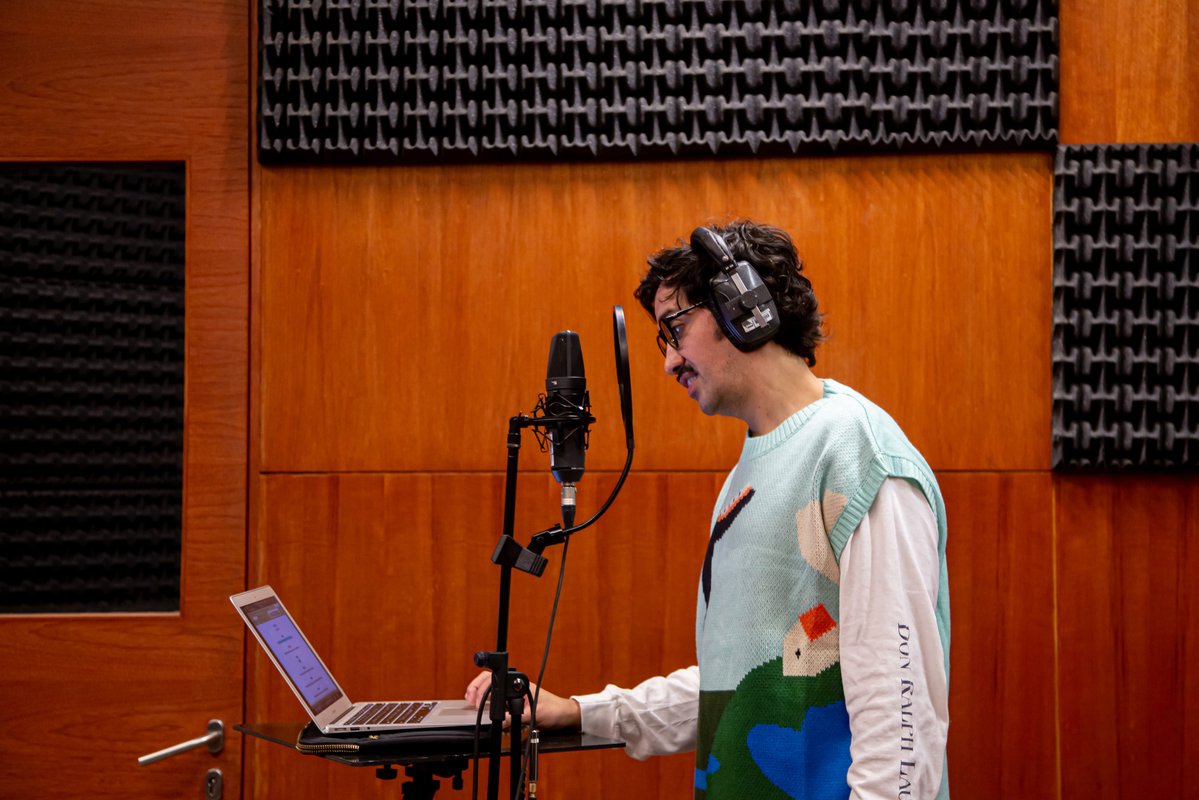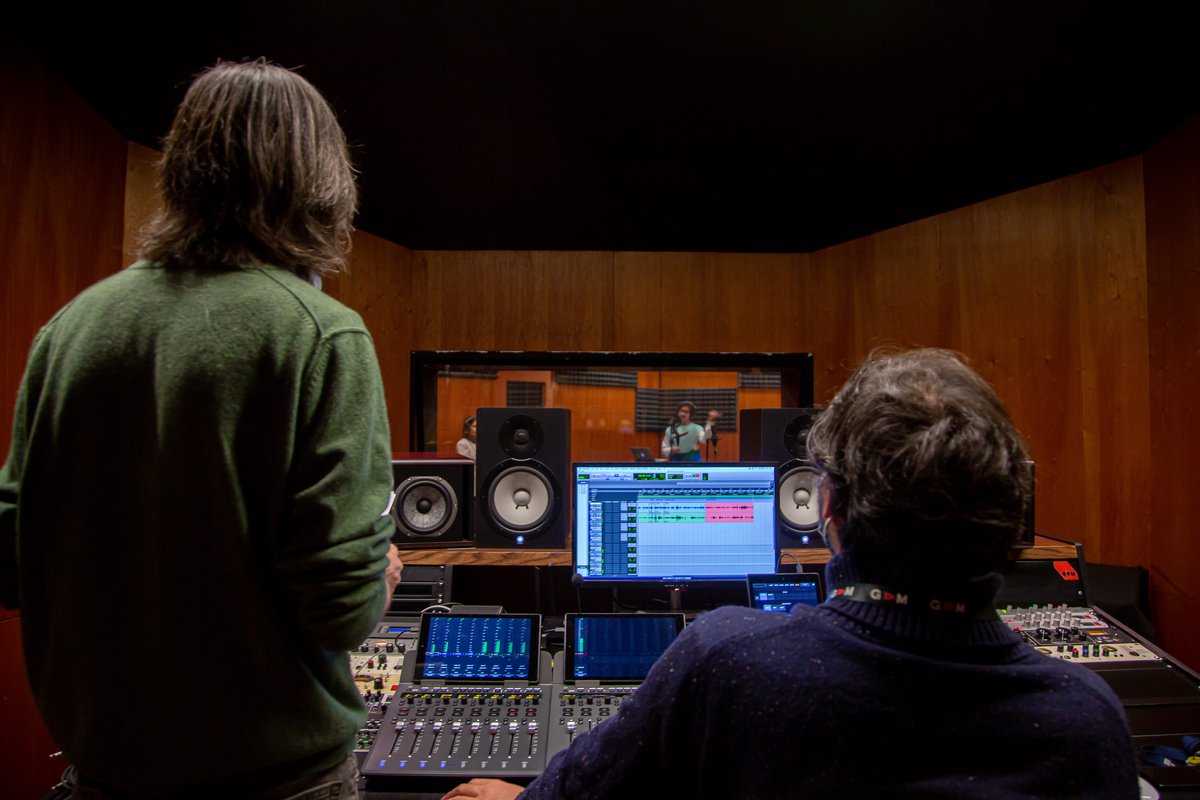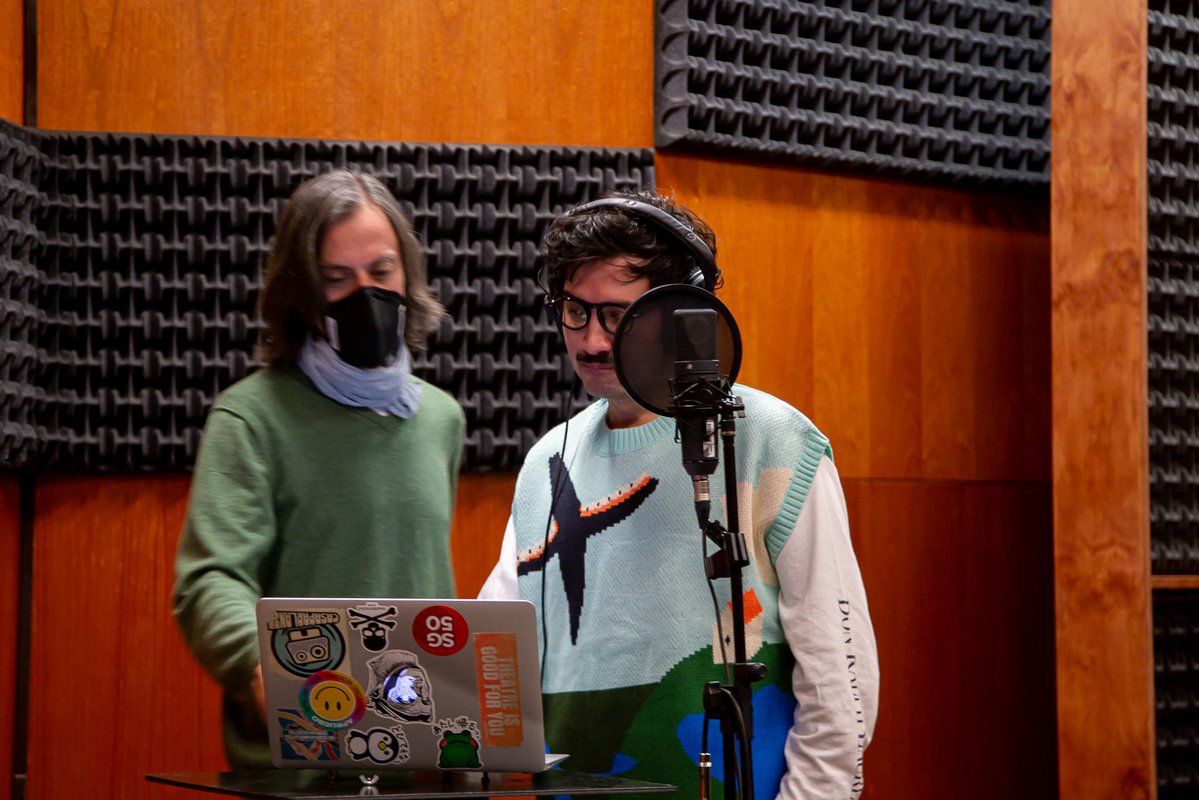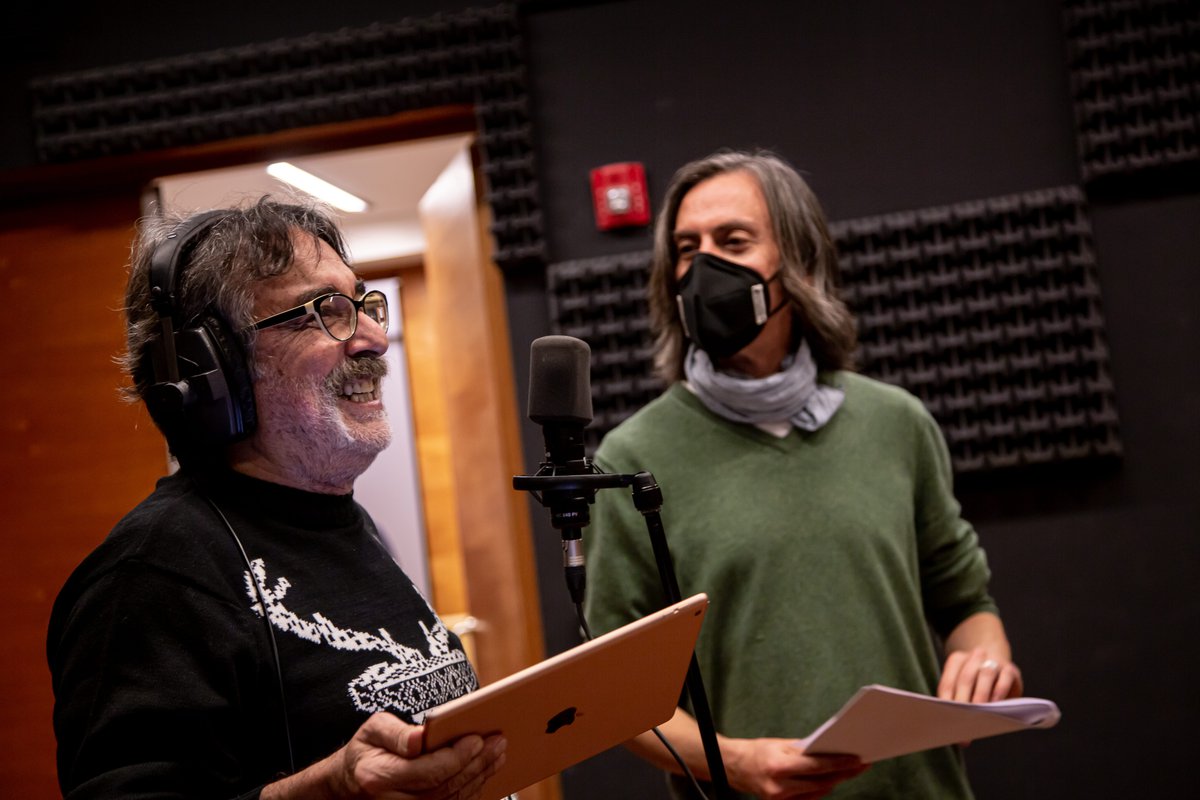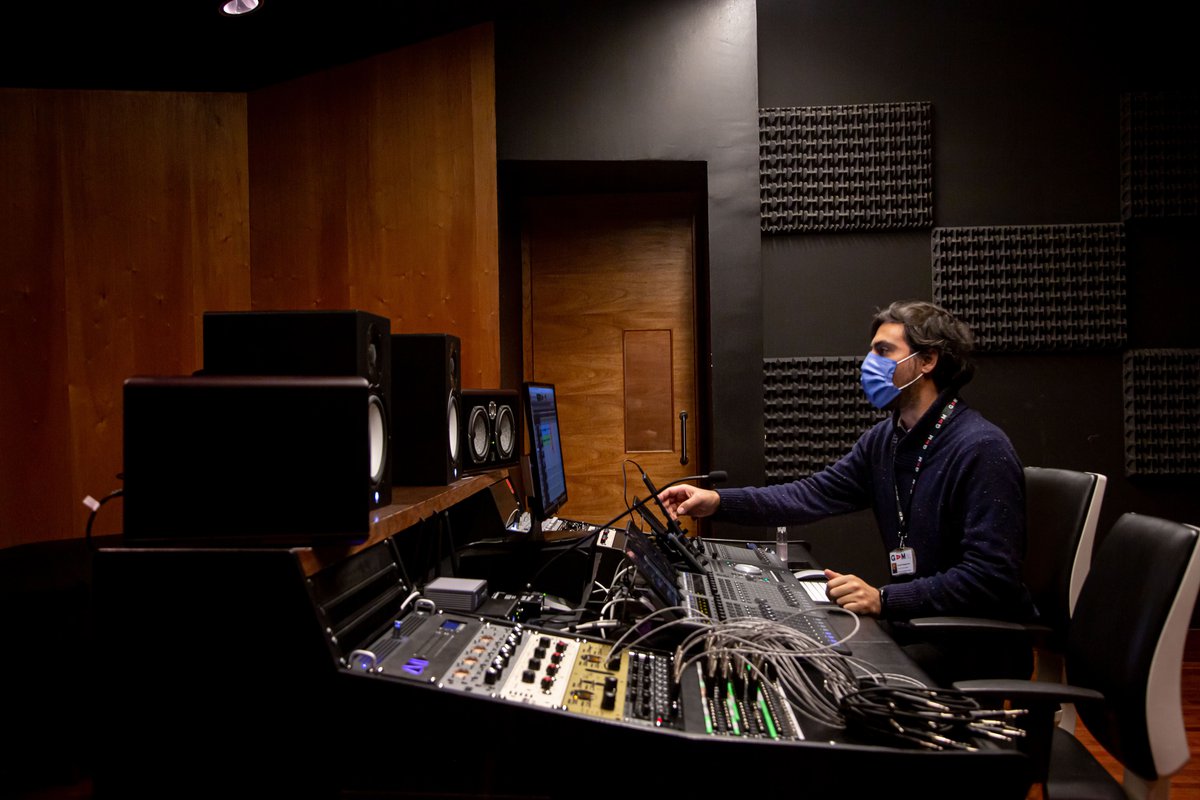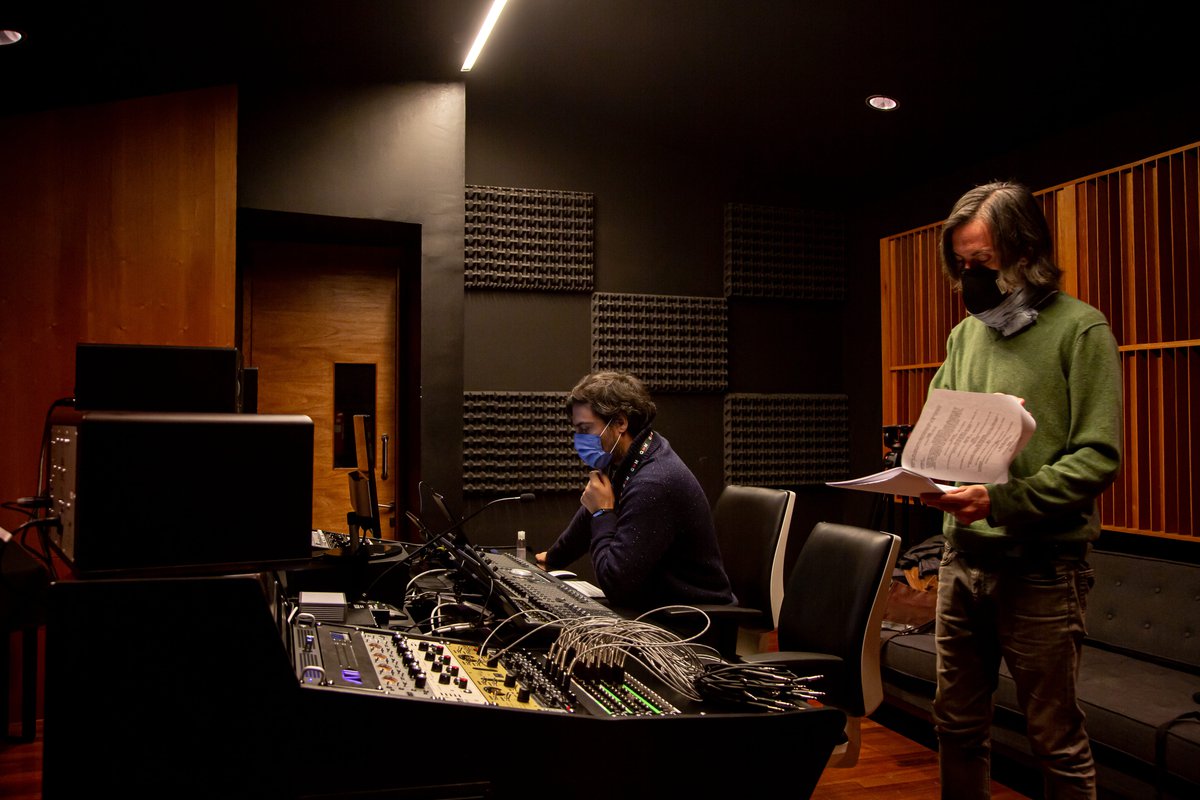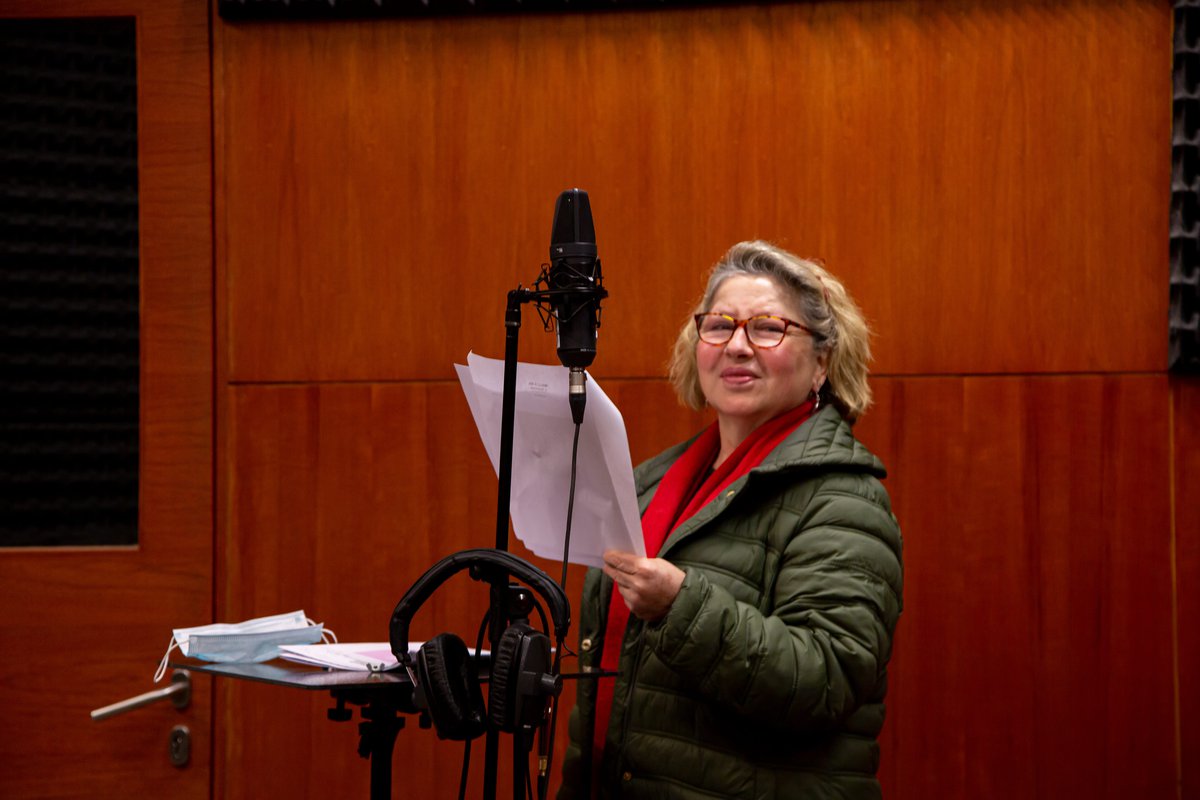Radioteatro
Director: Néstor Cantillana | Authors: Gonzalo Muñoz Lerner and Nury Ortego Farré | Cast: Macarena Teke, Héctor Morales, Francisco Reyes, Álvaro Espinoza, Mary Carmen Arrigorriaga, Marcela Salinas, Pablo Schwarz, Carla Casali, Guilherme Sepúlveda, Francisco Ossa, Paula Bravo, Francisca Gavilán, Cristian Carvajal | Original Music: Andrés Pérez
Néstor Cantillana
Director
A multifaceted actor and director
Nestor’s career as an actor began in 1994, under prominent directors such as Alfredo Castro, Alexander Stilmark, Cristián Marambio, Víctor Carrasco, Marcos Guzmán, Rodrigo Bazaes and Heidrun Maria Breier, among many others. In 1996, he premiered La música, by Marguerite Duras, beginning his career as a director after acting in plays such as Sueño con un revólver and El amor es un franco tirador, by Lola Arias; Alias Gospodin, by Philipp Löhle, Rehabilitarte, by Pablo Aguirre, and Laboratorio de acción teatral, a project that won a Fondart research award in 2005. In 2019, he directed Heiner Müller's The Horatio, which has been staged intermittently due to the social outbreaks and the pandemic in Chile. In 2010 he was director of the Muestra de Dramaturgia Nacional. In cinema, he stands out for feature films such as Andrés Wood's Historias de fútbol, Raúl Ruiz's Cofralandes, Pablo Larrain's No, and Sebastián Lelio's La sagrada familia and Una mujer fantástica, among others. In television he has worked for TVN, Canal 13, Chilevisión and HBO Latin America. He has been recognized with the Apes, Altazor and Caleuche awards for his work in series and teleseries.
Teatro para ojos cerrados
The company
Back to radio theater, empowering imagination
Teatro para ojos cerrados emerged inmidst of the pandemic, as a way to adapt the theatrical experience to physical distancing.
The radio theater-format has allowed the group to maintain the contact between actors and spectators through their voices and the sound universe. The development of imagination through music and auditory stimulation is a fundamental part of the company's plays.
During 2020, working from their homes, they produced the radio plays Los invasores by Egon Wolf, Delirio by Falk Richter and the series Malú a mil by Gonzalo Muñoz-Lerner and Nury Ortego.
-Because it portrays topics that have become extremely current over the last two years, such as the life of Chileans jaded by so much time in pandemic and quarantines, confronted daily with fear and the new way of living to which they have to adapt. In addition, the radio play reviews other topics, like family and friendship relationships. It explores sex from a particular point of view and in its multiple forms, in a wide spectrum of tastes.
-Because the scriptwriters felt that they had no limits to let their imagination fly: this script arises from freedom, without censorship. It explores sexuality in an open way, trying to provide a feminist view. The way an adult woman lives her sexuality today is a complex subject with many edges. We are able to approach these the particular insights of Malú.
Radio Drama: artistic piece composed of words, sound effects and musical tracks. It tells a story listeners can recreate in detail in their mind. The Radio Drama lived its golden age in the 20s, 30s and 40s all over the world, along with the heyday of radio; a trend that in Chile extended until the 70s. Worldwide, perhaps the best known is The War of the Worlds, a play created in 1938 by the American actor and director Orson Welles, which narrated the ravages around the world caused by an alien invasion. Its level of realism was such that it caused panic in thousands of listeners, who thought the news was real (nevertheless, the story was based on the homonymous novel by H.G. Wells).
Radio Drama in Chile: Memoria Chilena (digital branch of the National Library) tells that the first radio theater in Chile was broadcast in 1932, on the now dissolved Radio Universo. It was called La enemiga (The Enemy) and starred Maruja Cifuentes and Carlos Justiniano. Broadcasted mainly at noon, these stories had a dramatic feature and aimed at female audiences, although in the following decades -until the 1970s- radio theater was also a fertile format for comedies and even suspense. Emblems of that period are Hogar dulce hogar, Residencial La Pichanga, La bandita de Firulete and the well-remembered Radiotanda, with actress Ana González and her character "La Desideria". In the horror genre, the most famous radio drama plays were El doctor Mortis and Lo que cuenta el viento.
On Instagram @soymaluamil
PRESENTA

Malú a Mil 2
By Teatro para ojos cerrados | Directed by Néstor Cantillana
- Chile
- Spanish
- 12 chapters of 20 minutes each
- + 18 years
In the second season, Malú has to make difficult decisions in order not to compromise her freedom.
In the second season of MALÚ A MIL, Malú starts a new and different journey. Who will accompany her: her friends Sara, Fer and Vicente? And will they really become friends with Vicho? An illness is to threaten a member of her family; who might that be? Her son Martin? Her ex, Andrés? Her mother, her sister? How will family relationships be affected by this situation? Will Giovanny, the slut, continue on his way? Or will he return with other of his former lovers, like the professor? Or will she have new lovers this season? Will she achieve what she set out to do: live freely and be happy with herself, enjoying her solitude? Or will someone appear who make her put into doubt her recent convictions? Will her heart beat for love again?
If you listened to the first season of MALÚ A MIL you already know Malú. Now she's back, with renewed energy to face more adventures. New opportunities have opened up for her, she has found a job, met different people and is determined to live new experiences in accordance with her decision not to compromise her freedom.
Malú a Mil 2
By Teatro para ojos cerrados | Directed by Néstor Cantillana
- Chile
- Spanish
- 12 chapters of 20 minutes each
- + 18 years
In the second season, Malú has to make difficult decisions in order not to compromise her freedom.
In the second season of MALÚ A MIL, Malú starts a new and different journey. Who will accompany her: her friends Sara, Fer and Vicente? And will they really become friends with Vicho? An illness is to threaten a member of her family; who might that be? Her son Martin? Her ex, Andrés? Her mother, her sister? How will family relationships be affected by this situation? Will Giovanny, the slut, continue on his way? Or will he return with other of his former lovers, like the professor? Or will she have new lovers this season? Will she achieve what she set out to do: live freely and be happy with herself, enjoying her solitude? Or will someone appear who make her put into doubt her recent convictions? Will her heart beat for love again?
If you listened to the first season of MALÚ A MIL you already know Malú. Now she's back, with renewed energy to face more adventures. New opportunities have opened up for her, she has found a job, met different people and is determined to live new experiences in accordance with her decision not to compromise her freedom.
Director: Néstor Cantillana | Authors: Gonzalo Muñoz Lerner and Nury Ortego Farré | Cast: Macarena Teke, Héctor Morales, Francisco Reyes, Álvaro Espinoza, Mary Carmen Arrigorriaga, Marcela Salinas, Pablo Schwarz, Carla Casali, Guilherme Sepúlveda, Francisco Ossa, Paula Bravo, Francisca Gavilán, Cristian Carvajal | Original Music: Andrés Pérez
Néstor Cantillana
Director
A multifaceted actor and director
Nestor’s career as an actor began in 1994, under prominent directors such as Alfredo Castro, Alexander Stilmark, Cristián Marambio, Víctor Carrasco, Marcos Guzmán, Rodrigo Bazaes and Heidrun Maria Breier, among many others. In 1996, he premiered La música, by Marguerite Duras, beginning his career as a director after acting in plays such as Sueño con un revólver and El amor es un franco tirador, by Lola Arias; Alias Gospodin, by Philipp Löhle, Rehabilitarte, by Pablo Aguirre, and Laboratorio de acción teatral, a project that won a Fondart research award in 2005. In 2019, he directed Heiner Müller's The Horatio, which has been staged intermittently due to the social outbreaks and the pandemic in Chile. In 2010 he was director of the Muestra de Dramaturgia Nacional. In cinema, he stands out for feature films such as Andrés Wood's Historias de fútbol, Raúl Ruiz's Cofralandes, Pablo Larrain's No, and Sebastián Lelio's La sagrada familia and Una mujer fantástica, among others. In television he has worked for TVN, Canal 13, Chilevisión and HBO Latin America. He has been recognized with the Apes, Altazor and Caleuche awards for his work in series and teleseries.
Teatro para ojos cerrados
The company
Back to radio theater, empowering imagination
Teatro para ojos cerrados emerged inmidst of the pandemic, as a way to adapt the theatrical experience to physical distancing.
The radio theater-format has allowed the group to maintain the contact between actors and spectators through their voices and the sound universe. The development of imagination through music and auditory stimulation is a fundamental part of the company's plays.
During 2020, working from their homes, they produced the radio plays Los invasores by Egon Wolf, Delirio by Falk Richter and the series Malú a mil by Gonzalo Muñoz-Lerner and Nury Ortego.
-Because it portrays topics that have become extremely current over the last two years, such as the life of Chileans jaded by so much time in pandemic and quarantines, confronted daily with fear and the new way of living to which they have to adapt. In addition, the radio play reviews other topics, like family and friendship relationships. It explores sex from a particular point of view and in its multiple forms, in a wide spectrum of tastes.
-Because the scriptwriters felt that they had no limits to let their imagination fly: this script arises from freedom, without censorship. It explores sexuality in an open way, trying to provide a feminist view. The way an adult woman lives her sexuality today is a complex subject with many edges. We are able to approach these the particular insights of Malú.
Radio Drama: artistic piece composed of words, sound effects and musical tracks. It tells a story listeners can recreate in detail in their mind. The Radio Drama lived its golden age in the 20s, 30s and 40s all over the world, along with the heyday of radio; a trend that in Chile extended until the 70s. Worldwide, perhaps the best known is The War of the Worlds, a play created in 1938 by the American actor and director Orson Welles, which narrated the ravages around the world caused by an alien invasion. Its level of realism was such that it caused panic in thousands of listeners, who thought the news was real (nevertheless, the story was based on the homonymous novel by H.G. Wells).
Radio Drama in Chile: Memoria Chilena (digital branch of the National Library) tells that the first radio theater in Chile was broadcast in 1932, on the now dissolved Radio Universo. It was called La enemiga (The Enemy) and starred Maruja Cifuentes and Carlos Justiniano. Broadcasted mainly at noon, these stories had a dramatic feature and aimed at female audiences, although in the following decades -until the 1970s- radio theater was also a fertile format for comedies and even suspense. Emblems of that period are Hogar dulce hogar, Residencial La Pichanga, La bandita de Firulete and the well-remembered Radiotanda, with actress Ana González and her character "La Desideria". In the horror genre, the most famous radio drama plays were El doctor Mortis and Lo que cuenta el viento.
On Instagram @soymaluamil
PRESENTA

